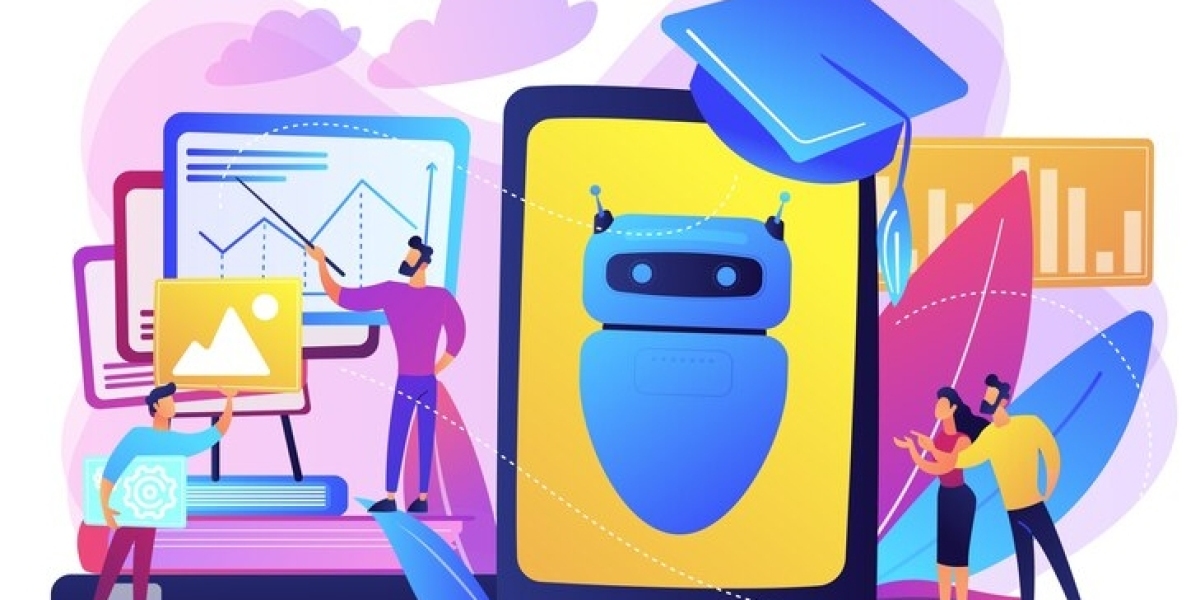Introduction to Generative AI
Imagine a classroom where every student's unique learning style is catered to in real-time. Picture an educational landscape transformed by technology that not only assists teachers but also empowers learners like never before. This is the potential of generative AI in education and training.
Generative AI refers to algorithms capable of producing content, whether it's text, images, or even simulations. In the realm of education, this transformative technology opens up new avenues for personalized learning experiences. As we dive deeper into how generative AI can reshape our approach to teaching and training, it becomes clear that we are on the brink of a revolution. Let’s explore what this means for educators and learners alike as we navigate through current applications, benefits, future developments, and ethical considerations surrounding this exciting innovation.
Current Applications of Generative AI in Education and Training
Generative AI is making significant strides in education and training. One prominent application is creating personalized learning experiences. By analyzing student data, it generates customized content that matches individual learning styles.
Tutoring systems are also benefiting from this technology. AI-driven platforms can provide instant feedback and explanations tailored to each learner’s needs. This immediate support enhances understanding and retention of information.
In language learning, generative AI tools create immersive scenarios for conversation practice. These simulations enable students to engage authentically with the language in a risk-free environment.
Furthermore, course material development sees a revolution through automated content generation. Instructors can save time while ensuring high-quality resources that meet curriculum standards.
Virtual classrooms utilize generative AI to create dynamic environments where learners interact seamlessly with both peers and content. The blend of technology fosters collaboration and innovation among students.
Benefits of Using Generative AI in Learning
Generative AI introduces a new dimension to learning, making it more personalized and engaging. By analyzing individual learning styles, it tailors content to meet the unique needs of each student.
This technology enables adaptive assessments, adjusting difficulty levels based on real-time performance. It keeps learners challenged but not overwhelmed.
Moreover, Generative AI can create rich multimedia resources effortlessly. Students benefit from interactive simulations or immersive experiences that traditional methods struggle to provide.
Collaboration also flourishes in this environment. Learners can engage with AI-driven tools that facilitate group projects and discussions, enhancing teamwork skills.
Educators gain valuable insights through data analysis provided by Generative AI. This allows for better curriculum adjustments and targeted interventions where needed.
Potential Future Developments and Impact on Education
The future of generative AI development in education is brimming with possibilities. Imagine personalized learning environments that adapt to each student’s pace and style.
AI could generate unique content tailored for different subjects, ensuring lessons remain engaging and relevant. It may even create simulations or virtual reality scenarios that immerse learners in real-world applications.
Furthermore, educators could harness AI tools to analyze student performance more effectively. This data-driven approach can inform teaching strategies, helping identify areas where students struggle most.
As generative AI becomes more integrated into curricula, we might witness a shift toward collaborative projects powered by this technology. Students working together on innovative assignments could foster creativity and critical thinking skills.
This evolving landscape promises not just improved educational outcomes but also a transformation in the way knowledge is imparted across classrooms worldwide.
Challenges and Ethical Considerations
As generative AI becomes more prevalent in education, several challenges arise. One significant concern is data privacy. Students' personal information may be used to train AI systems, leading to potential breaches.
Bias is another issue. If the data fed into these models contains biases, the generated content might perpetuate stereotypes or inequality. This can undermine educational values and create an unfair learning environment.
Moreover, there's a risk of over-reliance on technology. While generative AI can enhance learning experiences, it should not replace critical thinking and creativity among students.
Ethical considerations also extend to accountability. When an AI generates inappropriate content or misinformation, who takes responsibility? Establishing clear guidelines and ethical frameworks will be essential for navigating these complexities effectively.
Educators must balance innovation with traditional teaching methods to ensure comprehensive development without losing sight of interpersonal skills that are vital in real-world scenarios.
Conclusion
As the landscape of education continues to evolve, generative AI stands out as a transformative force. Its potential to create personalized learning experiences can cater to diverse student needs and learning styles. From developing customized study materials to simulating real-world scenarios for training purposes, the possibilities are promising.
Yet, with great power comes responsibility. The ethical considerations surrounding data privacy and bias must be addressed as we integrate these technologies into educational settings. Developing a balanced approach that prioritizes ethics while leveraging innovation will be crucial in shaping the future of education.
Looking ahead, generative AI is poised to redefine how knowledge is imparted and acquired across various platforms. Embracing this technology could lead us toward a more inclusive and effective educational system tailored for tomorrow's learners. As stakeholders continue to explore its applications, the conversation about harnessing generative AI responsibly will remain essential in our journey forward into an exciting new era of learning.









